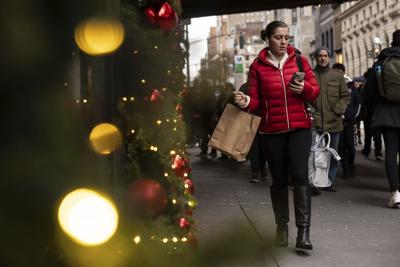Did you BNPL during the holidays? If so, you weren’t alone.
BNPL is shorthand for “buy now, pay later,” an online payment option gaining traction which gets mixed reviews as to whether it’s a consumer boon or bane.
Data cruncher Adobe Analytics said BNPL made a big splash on Cyber Monday as the holiday season got underway in November, with shoppers using the method to ring up $940 million in purchases that day — an increase of 42.5% from a year earlier. (Overall, Cyber Monday sales totaled $12.4 billion, according to Adobe.)
BNPL is a form of short-term loan that allows shoppers to split their online purchases into four installments to pay off over six weeks. No interest is charged, but you’re hit with late fees for missing a payment. And while users face no hard look at their creditworthiness, they must agree to repay via automatic deductions from a designated source, such as a debit or credit card.
BNPL providers include familiar names such as PayPal, Zip, Klarna, Afterpay and Affirm, which negotiate with merchants to offer the service for a cut of the purchase price.
The option began to attract attention in 2019, but really took off during the coronavirus pandemic, says the Consumer Financial Protection Bureau (CFPB), a federal agency that oversees the consumer finance markets.
In a fall 2022 report, the agency said, while BNPL “serves as a close substitute for credit cards,” it lacks some of the cards’ consumer protections, such as dispute resolution and clear disclosure of loan terms.
The agency also raised concerns about BNPL lenders “harvesting” data from borrowers to turn into marketing pitches for other products that could compromise privacy or encourage overextension. Overextension also was identified as its own problem because the ease of borrowing could leave consumers owing on several loans at once.
While traditional lenders, such as banks, have clearly identifiable state and federal regulators, the picture is less clear with BNPL, although the CFPB says its enforcement authority over “providers of credit” and “non-depository covered persons,” could include BNPL offerers.
The agency compiled its report after issuing a “market monitoring inquiry” to a handful of providers, requesting data on their loans. From that and other sources, including countries where BNPL is also popular, the agency said it would look at creating rules to ensure that providers offer the same protections and are subject to the same kinds of supervisory examination already established for credit card companies.
Meantime, three members of the U.S. Senate’s banking committee, including Chairman Sherrod Brown, D-Ohio, last month urged the agency to maintain its BNPL vigilance. While proponents see the loans as democratizing credit, the senators noted that American household debt continues to rise, along with delinquencies.
The agency, they wrote, “must ensure that BNPL does not become a method to take advantage of struggling consumers.”








